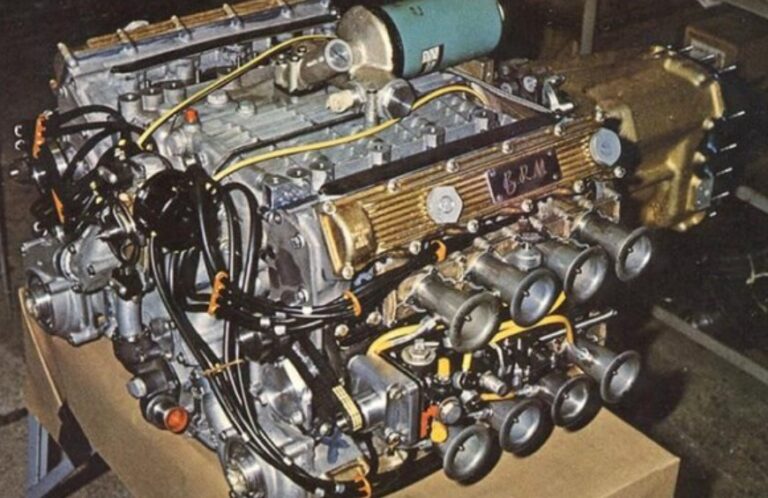Is Engine Ice Worth It? Quick Answer
This article will explain Is Engine Ice Worth It? This question resonates with many vehicle owners and enthusiasts. Engine Ice is a high-performance coolant designed for optimal engine performance.
In this article, we delve into its characteristics, comparing it with standard coolants. We’ll explore its benefits, potential drawbacks, and overall value. This comprehensive analysis aims to provide a clear answer to whether Engine Ice is a worthwhile investment for your vehicle.
Key Takeaways
- Engine Ice enhances engine cooling efficiency.
- It is environmentally friendly and non-toxic.
- Suitable for a wide range of vehicles, including motorcycles and ATVs.
- Higher cost compared to traditional coolants.
- May not be necessary for all vehicle types.
Is Engine Ice Worth It?
Yes, Engine Ice is worth it, especially for high-performance vehicles and in situations where engines are subjected to extreme temperatures. Its ability to effectively reduce and maintain lower engine temperatures prolong engine life, and its environmentally friendly formulation make it a valuable investment for many vehicle owners.

Engine Ice: A Comprehensive Overview
Engine Ice is a high-performance engine coolant known for its effectiveness in reducing engine temperatures. It is biodegradable, phosphate-free, and non-toxic, making it an environmentally friendly option. Unlike traditional coolants, Engine Ice is premixed with deionized water, which helps prevent water pump gasket and seal failures.
Benefits of Engine Ice
Engine Ice offers several advantages over standard coolants. It significantly reduces operating temperatures, ensuring better performance and longevity of the engine.
This coolant is also known for its ability to prevent boil-over, a common issue in high-performance engines. Moreover, its non-toxic nature makes it safer for both users and the environment.
Performance Comparison with Standard Coolants
When compared to standard coolants, Engine Ice stands out in terms of its cooling efficiency. It has a boiling point of 256°F (124°C) and a freezing point of -26°F (-32°C), making it highly effective in extreme conditions. This superior temperature range provides an edge in maintaining optimal engine performance.
Cooling Efficiency and Engine Health
The superior cooling efficiency of Engine Ice contributes to maintaining a healthier engine. By reducing the operating temperature, it minimizes the risk of engine overheating, which can lead to severe damage.
This aspect is particularly crucial for high-performance vehicles and motorcycles, where maintaining optimal temperature is essential for peak performance.
Cost-Benefit Analysis of Engine Ice
While Engine Ice is more expensive than traditional coolants, its long-term benefits could justify the cost for many users. The enhanced cooling efficiency and engine protection it offers can lead to fewer repairs and a longer engine lifespan, potentially saving money in the long run.
Understanding the Investment
Investing in Engine Ice can be seen as a preventive measure for your vehicle. The initial higher cost might be offset by the reduced risk of engine damage and associated repair costs.
This makes it a potentially wise investment, especially for those with high-performance or off-road vehicles.
Suitability for Different Vehicle Types
Engine Ice is versatile and suitable for a wide range of vehicles, including cars, motorcycles, ATVs, and snowmobiles. Its ability to operate effectively in diverse temperature ranges makes it a reliable choice for various applications.
Ideal Choices for Specific Vehicles
For high-performance vehicles and motorcycles, Engine Ice is often the preferred choice due to its superior cooling capabilities. However, for regular commuter vehicles, the benefits might not be as pronounced, and a standard coolant could suffice.

Environmental Impact and Safety
One of the notable features of Engine Ice is its environmental friendliness. Being biodegradable and non-toxic, it poses less risk to wildlife and ecosystems. Additionally, its safety profile is superior, making it a safer choice for users and professionals who handle coolants regularly.
Eco-Friendly and User Safety
The non-toxic nature of Engine Ice ensures that it is safe to handle, reducing the risk of chemical burns or poisoning. This aspect, combined with its environmental benefits, contributes to its growing popularity among environmentally conscious consumers.
Engine Ice in Extreme Weather Conditions
Engine Ice’s performance in extreme weather conditions sets it apart from traditional coolants. In scorching temperatures, its high boiling point prevents boil-over, a critical factor for vehicles operating in hot climates or under strenuous conditions.
This characteristic ensures that the engine maintains a stable temperature, enhancing performance and reducing wear and tear.
Reliability in Cold Climates
Conversely, in cold climates, Engine Ice’s low freezing point plays a significant role. It remains fluid and effective even in sub-zero temperatures, providing reliable engine protection against freezing.
This feature is particularly beneficial for vehicles in colder regions or for those stored during winter months, ensuring that they start and operate smoothly without risking engine damage due to frozen coolant.
Longevity and Maintenance Considerations
Long-term use of Engine Ice can positively impact the maintenance and longevity of an engine. Its chemical composition helps in reducing corrosion and buildup inside the engine. This results in cleaner engine components, fewer blockages, and ultimately, a longer engine life.
Ease of Maintenance
Engine Ice’s long-lasting formula also means less frequent coolant changes, simplifying vehicle maintenance. Its non-toxic nature makes disposal less hazardous, contributing to safer and more environmentally responsible maintenance practices.
These factors, combined with the potential reduction in repair costs, make Engine Ice a compelling option for those looking to minimize long-term maintenance efforts.
Engine Ice in Racing and High-Performance Scenarios
In the world of racing and high-performance vehicles, Engine Ice is often the coolant of choice. Its ability to efficiently manage engine temperatures under extreme stress is invaluable.

Racing engines, which operate at higher temperatures, benefit significantly from Engine Ice’s cooling capabilities, ensuring peak performance and reducing the risk of overheating.
Impact on Performance Vehicles
For performance vehicles, the enhanced thermal efficiency of Engine Ice can translate into more consistent power delivery and improved engine response.
This aspect is crucial in scenarios where every bit of performance counts. The reliability of Engine Ice under these demanding conditions is a testament to its quality and effectiveness.
Environmental and Health Concerns
Beyond its performance benefits, Engine Ice’s environmental and health advantages are noteworthy. The shift towards more eco-friendly automotive products has put a spotlight on the importance of using sustainable and safe materials.
Engine Ice aligns with this trend, offering a product that minimizes harm to the environment and reduces health risks for users.
Safe Handling and Disposal
The safe handling and disposal of Engine Ice are significant advantages. Its non-toxic formula means that accidental spills are less hazardous, and disposal doesn’t require specialized treatment. This aspect not only benefits individual users but also contributes to broader environmental protection efforts.
Does Engine Ice Make A Difference?
Engine Ice does make a noticeable difference, especially in high-performance and demanding operational environments. This coolant is specifically designed to maintain a lower operating temperature within the engine, which is crucial for both performance and longevity.

In scenarios where engines are prone to overheating, such as in racing or in heavy-duty vehicles, Engine Ice’s ability to reduce and stabilize engine temperatures can lead to a significant enhancement in performance.
Moreover, Engine Ice’s impact extends beyond just cooling. Its formulation helps in reducing engine wear and corrosion, which are common issues with standard coolants.
This can result in fewer maintenance requirements and a longer lifespan for the engine. Another area where Engine Ice makes a difference is in its environmental impact. Its biodegradable and non-toxic nature means it’s safer for the environment compared to traditional coolants.
What Temperature Is Engine Ice Good For?
Engine Ice is formulated to be effective over a wide range of temperatures. Its boiling point is significantly higher than that of standard coolants, at about 256°F (124°C), which means it can handle high-temperature conditions without boiling over.
This characteristic is particularly beneficial for engines that operate under high stress and are prone to overheating.
On the other end of the spectrum, Engine Ice also excels in cold conditions. It has a freezing point of -26°F (-32°C), making it a reliable choice in freezing temperatures.
This ensures that the coolant remains fluid and functional even in extremely cold environments, protecting the engine from freezing damage, which is a common issue in colder climates.
The effectiveness of Engine Ice across such a wide temperature range makes it an ideal choice for diverse operational conditions, from hot racing tracks to cold, snowy regions.
How Long Does Engine Ice Last?
Engine Ice is renowned for its longevity compared to traditional coolants. Typically, Engine Ice can last between 2 to 3 years or up to 30,000 miles before requiring a change, although this can vary depending on the vehicle’s usage and operating conditions.
This extended lifespan is due to its robust formulation, which resists the typical degradation that standard coolants undergo.

The longevity of Engine Ice also translates to reduced maintenance needs. Its stable chemical composition minimizes the buildup of deposits and corrosion inside the engine, thereby maintaining the coolant’s effectiveness over a longer period.
However, regular checks are still recommended to ensure the coolant is at the correct level and to inspect for any signs of contamination.
What Is Better Engine Ice Or Water Wetter?
Comparing Engine Ice and Water Wetter depends largely on the specific needs and conditions of use. Engine Ice is a pre-mixed coolant offering excellent heat transfer properties and a broad operational temperature range.
It is specifically designed for high-performance and heavy-duty applications, where maintaining optimal engine temperature is crucial.
Water Wetter, on the other hand, is not a coolant but an additive designed to be mixed with water. It improves the heat transfer efficiency of plain water and provides some level of corrosion protection. Water Wetter is often chosen for racing applications where the rules require the use of water only for cooling.
In terms of cooling efficiency, Engine Ice generally provides better overall temperature management, especially in extreme conditions. However, for applications where the use of pure water is mandatory, Water Wetter significantly enhances the cooling properties of water.
Conclusion
In conclusion, whether Engine Ice is worth it depends on your specific needs and vehicle type. Its superior cooling efficiency, environmental friendliness, and safety profile make it an excellent choice for high-performance vehicles and motorcycles.
However, for regular vehicles, the higher cost might not be justifiable given the marginal benefits. Ultimately, the decision to use Engine Ice should be based on a careful consideration of these factors.
Frequently Asked Questions
Is Engine Ice safe to handle?
Yes, one of the advantages of Engine Ice is its safety in handling. Being non-toxic, it poses less risk if accidentally ingested or comes into contact with the skin, unlike many traditional coolants that contain hazardous chemicals.
How does Engine Ice affect engine longevity?
By maintaining lower and more stable engine temperatures, Engine Ice reduces thermal stress on the engine. This can lead to less wear and tear, fewer engine-related issues, and ultimately, a longer engine lifespan.
Is Engine Ice more expensive than standard coolant?
Generally, Engine Ice is more expensive upfront compared to standard coolants. However, its longer lifespan and potential benefits like reduced maintenance and better engine health can make it a cost-effective choice in the long run.
Can Engine Ice be used in racing applications?
Absolutely. Engine Ice is especially popular in racing due to its ability to prevent overheating under high-stress conditions. Its superior cooling efficiency makes it a preferred choice for many racing teams and high-performance vehicle owners.
Is Engine Ice environmentally friendly?
Yes, Engine Ice is more environmentally friendly compared to many traditional coolants. Its biodegradable and non-toxic nature means it has a lesser environmental impact, both in terms of its use and disposal.

Welcome to the exhilarating world of Matt Rex, a professional car racer turned renowned vehicle enthusiast. Immerse yourself in his captivating blog as he shares heart-pounding adventures, expert reviews, and valuable insights on cars, trucks, jets, and more. Fuel your passion for speed and discover the beauty of vehicles through Matt’s engaging stories and meticulous expertise. Join the ever-growing community of enthusiasts who find inspiration and expert advice in Matt Rex’s blog—a digital hub where the thrill of speed meets the pursuit of knowledge.



![Is Jet Skiing Safe For Non-Swimmers? [Answered]](https://www.turbochaos.com/wp-content/uploads/2023/08/Is-Jet-Skiing-Safe-For-Non-Swimmers-768x512.jpg)
![How Far Can A Jet Ski Go Offshore? [Answered]](https://www.turbochaos.com/wp-content/uploads/2023/08/How-Far-Can-A-Jet-Ski-Go-Offshore-768x512.jpg)


